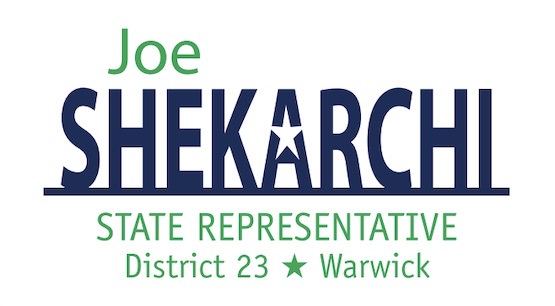Leader Shekarchi Proposes the Cure Bill to Incentivize Discovery of Cures for Major Diseases
House Majority Leader K. Joseph Shekarchi has introduced legislation that would have Rhode Island join an interstate compact aimed at finding cures for deadly diseases like cancer, Alzheimer’s, Parkinson’s, HIV and diabetes.
Known as the “Cure Bill,” the legislation (2020-H 7394) would add Rhode Island to a multistate compact that would offer very large monetary prizes to those who identify a cure to a disease identified for eradication by the compact. The prizes would be funded by the money saved – via Medicaid and other sources – over the first five years by compact member states as a result of the disease being cured.
The bill aims to offer an alternative model of incentivizing research into cures, rather than treatments, for major diseases. Proponents say the pharmaceutical industry’s model encourages research into development of treatment rather than cures, and academic research models can discourage innovation and risk-taking and because funding can be discontinued if researchers can’t demonstrate progress.
The prize money offered by the compact would likely be in the multibillions, and could encourage venture capitalists to fund research aimed at capturing it.
“It’s been half a century since the world has seen a major disease like polio actually cured. Since then, much of the development has focused on treatment. But actually curing a disease like cancer would save millions of lives, end victims’ suffering and save untold billions of public and private dollars,” said Leader Shekarchi (D-Dist. 23, Warwick). “This interstate compact is an innovative, inventive means of creating an incentive that doesn’t cost taxpayers anything beyond what these diseases are costing us now. If it works and a prize is paid out, the prize comes from the money we would have been spending on the disease. And after five years, we benefit from enormous savings as well as the cure. Joining this compact is a commitment without a risk, and the potential to do a tremendous amount of good, here in Rhode Island and for the world.”
The compact would be established once at least six states have passed similar legislation to join it. So far only Ohio, where the bill originated from an idea by a state lawmaker, has enacted it, but it has been introduced in numerous other states.
The compact would identify the diseases it wants to target, and also determine the five-year taxpayer savings for each member state if the disease is cured. Once a cure is verified, in order to claim the prize, the developer would have to hand over the patent to the compact, which would then work with a manufacturer to produce and distribute the cure. Its price would be limited to the actual costs associated with producing and distributing it, except that non-compact states and governments would pay a royalty to offset other expenses, creating extra incentives to join the compact. The more states that join the compact, the greater the potential prize money.
Having the compact take charge of distributing the cure at costs would also ensure against unnecessarily high prices for it, meaning that patients worldwide would be better able to access any lifesaving medicine developed in this way.
